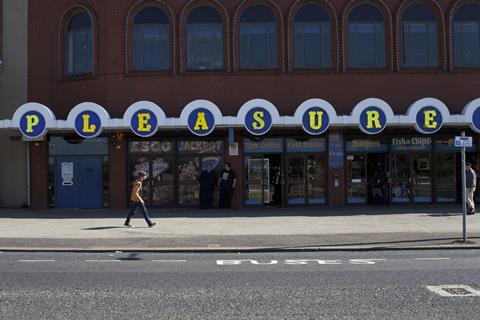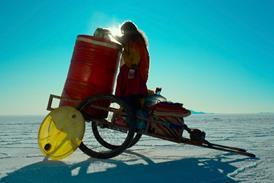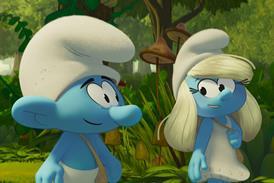Dir: Beeban Kidron. UK. 2013. 86mins

InRealLife asks some big, important questions without providing any remarkable answers. Director Beeban Kidron’s personal essay on the internet age voices universal qualms about a generation that seems more connected to technology than humanity and about corporations that seem to know more about us than we know about ourselves.
Kidron is good at giving a voice to fears about the way the internet may be eroding our humanity and the need to embrace change whilst remaining critical about what change means.
The mixture of facts, expert opinion and anecdotal interviews with a handful of teenage subjects feels random and unfocused as it flits from seeking definitions of common concepts to cyber-bullying via Julian Assange and porn-addicted teenage lads.
There is some interesting material here but Kidron’s inability to give it shape or impact reveals that she is no Michael Moore. InRealLife may achieve further Festival exposure but should feel quite at home as a television offering.
Kidron begins with her personal concerns about teenagers who seem permanently connected to electronic devices. In her voice-over she demands: ” Have we outsourced our children to the internet and if so who has them?” This is the starting point for an examination of what the internet does and how it is changing the world in which we live.
There are interviews with a small number of teenagers threaded throughout the film as they discuss personal experiences and how the Internet has shaped their world. Fifteen year-old Tom came out online as gay, or perhaps bi-sexual and has now built a passionate relationship with Dan that is marked by emails, tweets, online chats and Skyping although the two of them have yet to take the daring step of meeting in person.
Programmers, professors, authors and entrepreneurs are assembled to offer a view on how the internet is arming teenagers with dangerously unrealistic expectations of sexual relationships and how it is used to store and deploy information that has a vast commercial value as it so readily helps to define individuals as potential consumers. Julian Assange defines it as the biggest spying machine ever created.
There is a comedy routine from Eddie Izzard and various assertions are made along the way, including the fact that we look at our phones on average 150 to 200 times a day or that 90% of the world’s date has been created over the past two years. We are never told the sources for any of these facts. Inevitably, we are also informed that no representatives of Google, Apple or any of the other big players were willing to be interviewed for the film.
Kidron is good at giving a voice to fears about the way the internet may be eroding our humanity and the need to embrace change whilst remaining critical about what change means. The starting point of teenage lives seems to have led her down countless paths and the film seems to be constantly rushing off in a dozen different directions . It never finds an effective way of bringing everything together into a cohesive or satisfying whole.
Production companies: Sky Atlantic, Cross Street Films, Studio Lambert Ltd, BFI
International sales: Dogwoof, www.dogwoof.com
Producers: Beeban Kidron, Freya Sampson
Executive producers: Stephen Lambert, Lizzie Frankie, Chris Wilson, Jo Crawley
Editor: David Charap




![Benjamin Kramer Headshot Photo Credit_CAA[40][40]](https://d1nslcd7m2225b.cloudfront.net/Pictures/274x183/6/6/4/1455664_benjaminkramerheadshotphotocredit_caa4040_107707.jpeg)
















